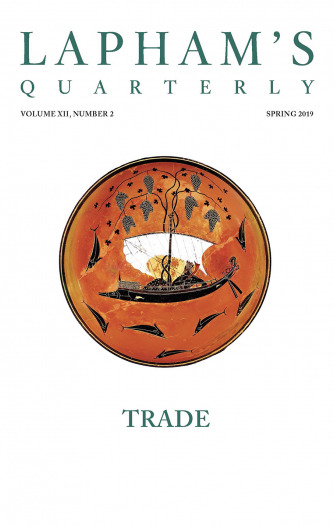All machinery is derived from nature and is founded on the teaching and instruction of the revolution of the firmament. Let us but consider the connected revolutions of the sun, the moon, and the five planets, without the revolution of which, due to mechanism, we should not have had the alternation of day and night, nor the ripening of fruits. Thus when our ancestors had seen that this was so, they took their models from nature, and by imitating them were led on by divine facts, until they perfected the contrivances that are so serviceable in our life.
Let us take first a necessary invention, such as clothing, and see how the combination of warp and woof on the loom, which does its work on the principle of an engine, not only protects the body by covering it but also gives it honorable apparel. We should not have had food in abundance unless yokes and plows for oxen, and for all draft animals, had been invented. If there had been no provision of windlasses, press beams, and levers for presses, we could not have had shining oil, nor the fruit of the vine to give us pleasure, and these things could not be transported on land without the invention of the mechanism of carts or wagons, nor on the sea without that of ships. The discovery of the method of testing weights by steelyards and balances saves us from fraud by introducing honest practices into life. There are also innumerable ways of employing machinery about which it seems unnecessary to speak, since they are at hand every day, such as mills, blacksmiths’ bellows, carriages, gigs, turning lathes, and other things that are habitually used as general conveniences.
From On Architecture. The tenth and final volume of the work, devoted to machines, begins with devices used in peacetime construction and transport and concludes with war machines, a subject in which Vitruvius had gained expertise as an artilleryman in Julius Caesar’s campaigns in Gaul. “Machines constructed to assault the bold and impetuous,” he writes, “should be differently contrived to those for attacking the crafty, and still dissimilar where the parties are timid.”
Back to Issue


